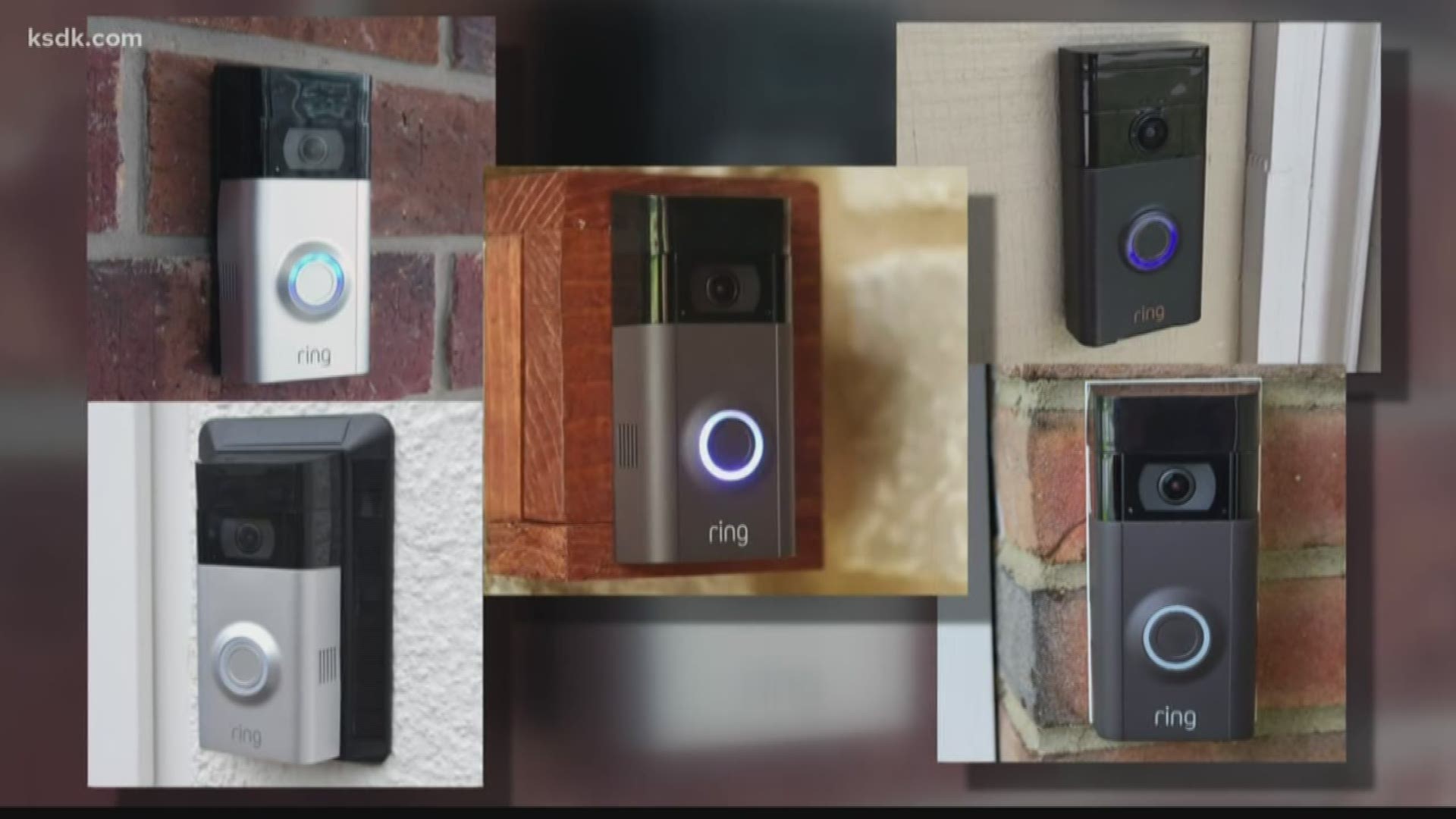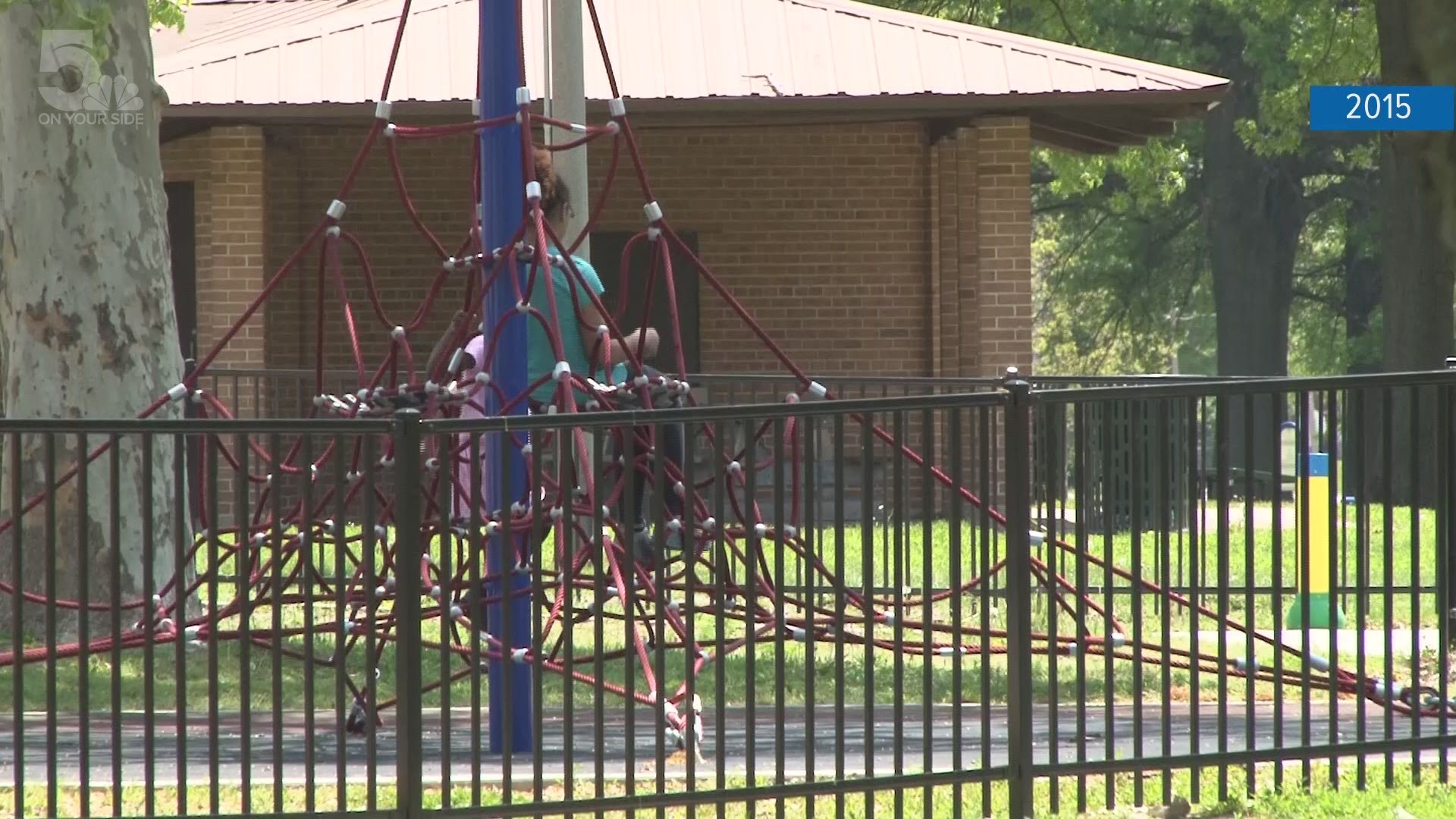ST. LOUIS —
Doorbell cameras are surging in popularity. Market research suggests 25% of all homes in the US either already own them, or plan to own them in the near future.
But does the video recorded on your camera truly belong to you? Can others access it without your permission?
Nathan Livinghouse is a proud Ring camera owner in south city.
"It’s night and day. You hear something outside. It’s nothing to just look at your phone and see who’s out there," Livinghouse said.
A live feed of Nathan's doorbell camera is just a tap away on his smartphone, 24 hours a day. If the camera detects any motion outside, it automatically starts recording.
Nathan has owned the camera for about a year, and already, it's come in handy when JJ Twig's was robbed just around the corner from his house.
"I kind of walked on to them running away from the scene and the next day the police had come and asked to use the footage from the Ring," Livinghouse said.
Livinghouse said he was happy to hand that video over to police.
In addition to Nathan's video, two other nearby cameras also caught the crooks on the run.
Nathan was able to see their video on Ring's sister app, "Neighbors."
"You can just set this anywhere, and you can see what the crime is," he explained.
Neighbors is essentially a social media app geared towards crime prevention. Anyone can join whether you own a Ring camera or not and anyone can post about suspicious activity, along with surveillance video.
But it's not just your friends next door that have access to these videos. So does the "thin blue line."
"It just made it more convenient for the police to talk to the citizens and the citizens to talk to the police," said Abby Orscheln, a Police Analyst for the St. Louis County Police Department.
Four-hundred police departments across the country have partnered with Amazon, the parent company of Ring, for special access to these surveillance videos.
St. Louis County is one of those partners.
"Right now, I think there’s around 20,000 doorbell cameras in St. Louis County," said Orscheln.
Here's how it works.
Much like Ring camera owners, St. Louis County also has a log-in to Neighbors, but instead of being specific to a neighborhood, they can see posts from all over St. Louis County.
If a video is posted to Neighbors, Orscheln said it's fair game, no questions necessary.
"If somebody posts a video or any information, it becomes public information so we can use those videos," she said.
St. Louis County can also use their portal to scan an area to see if there are additional cameras that might have captured the crime.
"And then it will send notification to all ring users in this area," Orscheln explained.
At that point, the camera owner gets a message from police asking for permission to use their video.
If they say yes, investigators receive the video.
Even if they say no, investigators can still submit a subpoena. Amazon actually has a step by step process for departments to follow.
"There is a process on our end. We even have a link on how to keep the video from being deleted and then how to legally subpoena the video," said Orscheln.
We asked Orscheln if there are any privacy concerns with that workaround strategy.
"Um, I don’t think so. It’s all voluntary unless it’s involved in major crime and if it’s a major crime, I think it’s more important for public safety that we have that information," she told us.
Orscheln sees it as a huge time saver.
"Now they don’t have to go door to door and ask everybody if they have some sort of footage, they can just send out this blanket request," Orscheln said.
Nathan sees it as an invasion of privacy.
"I think that’s definitely overstepping their bounds," Livinghouse said."If Ring’s going to use it, I’d like to know about it."
We reached out to Amazon for this story. A spokesperson said the company does not disclose user videos without the user's consent, unless the video is subpoenaed.
The spokesperson added in a statement, "Law enforcement can only submit requests for video footage to users in a given area when investigating an active case. Ring facilitates these requests and user consent is required in order for any footage or information to be shared with law enforcement. Law enforcement are not able to see any information related to which Ring users received a request and whether they declined to share or opt-out of future requests."
To read the full legal policy of Ring's partnership with police departments, click here.
Privacy experts also point to the user agreement that Ring has you sign when you install your camera.
In the agreement, you sign away all your rights to the video to Amazon to use at their discretion. That includes advertising.
Amazon said it is allowed to do that but will ask for permission first.
If they can't reach you for permission, they will blur your face in the advertisement.


